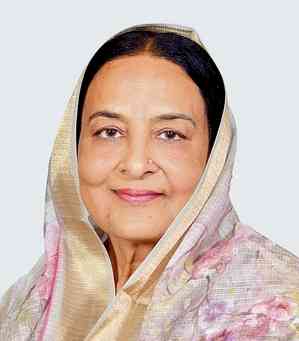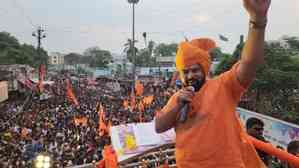US accords highest civilian honour to King family
Washington, June 25 (IANS) The late civil rights leader Martin Luther King Jr. and his wife Coretta have been posthumously awarded the US Congressional Gold Medal, the nation's highest civilian honour. The Kings are considered the foremost...

Washington, June 25 (IANS) The late civil rights leader Martin Luther King Jr. and his wife Coretta have been posthumously awarded the US Congressional Gold Medal, the nation's highest civilian honour.
The Kings are considered the foremost leaders of the country's civil rights movement in the 1960s that led to the removal of racial segregation and equal voting rights for non-white Americans.
"We gather here in the Capitol to honour Dr. Martin Luther King Jr. and his beloved wife, Coretta Scott King, one of the most distinguished and admired husband and wife teams of the 21st century," said John Lewis, himself a leader in the civil rights movement, Tuesday.
"Often history remembers speeches of facts and figures, but I cannot forget their love. From their union came an enduring strength that carried many of us through the darkest days of the movement," Xinhua quoted Lewis as saying.
Other civil rights-era figures who have been honoured with the Congressional Gold Medal include Rosa Parks (1999), who became the face of the Montgomery Bus Boycott when she refused to leave her seat and to move to the back of the bus, a section reserved for blacks; and Dorothy Height (2004), one of the most prominent women of the movement, who organised "Wednesdays in Mississippi", a dialogue series in which northern women traveled to southern cities to work to foster harmony during the contentious civil rights years.
"In a larger sense, today's ceremony is not one of celebrations but of mourning," Martin Luther King III, son of Martin Luther King Jr., wrote in an op-ed published in The Hill Tuesday.
"Mourning because, as we approach another anniversary, that of the Voting Rights Act of 1965, we are moving backward rather than forward in protecting our sacred right to vote and engaging more citizens in the voting process."

 cityairnews
cityairnews 
















